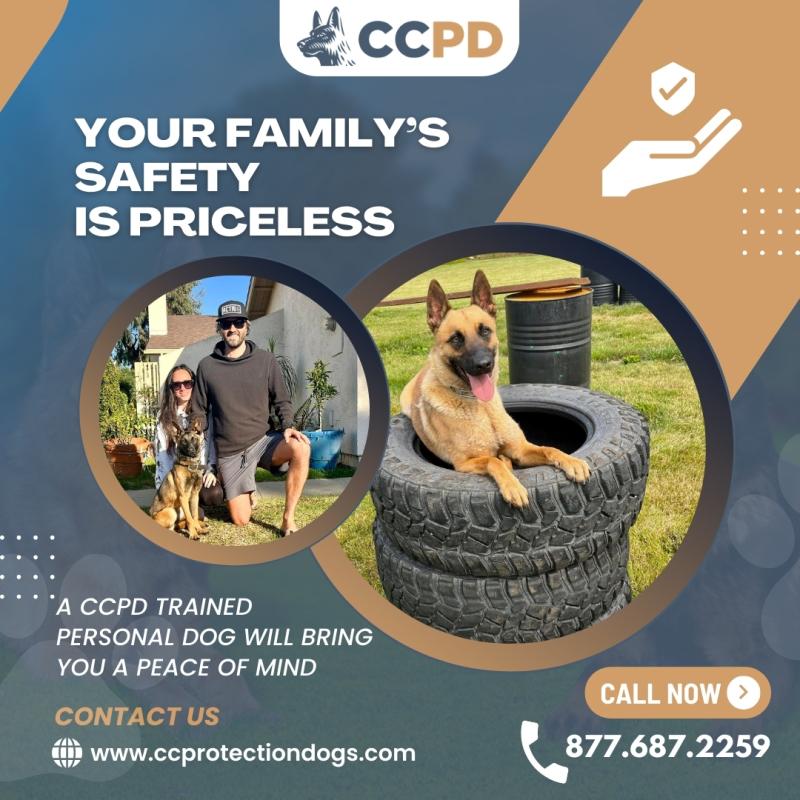Choose Your Ideal Guardian

Selecting a protection
dog is a significant decision that requires careful consideration. Factors such
as breed, temperament, and training are crucial in shaping a dog into a
reliable protector and loyal companion that fits your specific home, family,
and lifestyle.
Selecting
the Best Breed for Protection: Some dog breeds are
inherently better suited for home Executive protection Dogs. When choosing a guard dog, it's
essential to consider breeds known for their responsiveness, obedience,
agility, intelligence, loyalty, and companionship. These dogs should have a
strong physical presence to deter potential intruders and be capable of
neutralizing threats when necessary. Additionally, they should be able to
"turn off" their protective instincts and be loving family
companions.
Best companies select and train specific breeds for their excellent qualities as both defenders and family companions: They select breeds that are renowned for their balance of strength, speed, intelligence, and trainability, making them ideal for home protection.

Importance
of Temperament: A dog's temperament is critical in
determining its suitability as a family protector. Home protection dogs must
balance their drive to protect with their role as a companion and playmate.
They must be responsive to commands from all family members, whether a small
child or a grandparent. You must look for dogs that can distinguish between
"work time" and "family time," showing both responsiveness
and a willingness to please.
Several factors
contribute to a dog's temperament, including breed, lineage, conditioning, and
training. We collaborate with top breeders and use a comprehensive screening
process to select dogs. This process evaluates overall health, lineage, and
various physical and mental aspects to ensure a stable temperament and high-performance levels.
The environment in which
a dog is raised also significantly impacts its suitability as a home protector.
We see to it that our home protectors are raised in family environments rather
than kennels. This early exposure to various people, pets, and stimuli helps
them develop comfort and adaptability within a household. In contrast, dogs
raised in kennels may show signs of stress and anxiety in home settings, even
after training.
Pedigree
and Performance: Choosing a dog from a responsible breeder who
meticulously tracks and optimizes health and performance over generations is
crucial. A reputable bloodline ascertains that your canine companion will
remain healthy and in peak condition.
We employ full-time staff
dedicated to finding the best dogs for home protection from top breeders and
trainers. Our dogs undergo rigorous conditioning and training, including a
multi-step screening process that assesses their mental and physical acuity.
By selecting dogs from
the best bloodlines, we see to it that our home protection dogs outperform
standard dogs of the same breed in speed, agility, courage, and mental
capacity.
Comprehensive
Training for Home Protection: Effective home protection
training is essential for developing a reliable protector. Individuals seeking
a home protector have high expectations for training and performance. The
training programs must start from an early age, focusing on the skills,
socialization, and responsiveness needed for effective protection.
Quality training is
vital. It helps the dog to activate its guarding instincts when necessary and
"turn them off" during downtime with family members and friends. Our
experienced trainers use proven methods to develop protection dogs that meet
high standards of discipline and reliability.

Comments